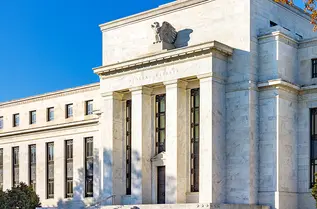Summary
The energy crisis resulting from the war in Ukraine has altered profoundly Europe’s economic performance and prospects. Countries have been affected unevenly, based on how dependent they are on Russian gas and oil. German industry has been particularly hard hit. Beyond industry, the entire German economic model is now at stake. Here we provide an update on the prospects for the German economy for 2023-24. Then, we recall that the challenges to be met are Europe-wide, and that only a coordinated approach at the EU level will enable member countries to meet them. On this front, recent news is moving in the right direction.
The energy crisis in a nutshell: a complex equation for Germany
The economy was overly dependent on Russian gas, oil, and coal. Germany, like all European countries, must now review its energy mix. It is clear that Germany will never return to dependence on Russia. It needs to diversify its energy suppliers, but this will take years. In the short run, despite 100% gas storage, household consumption needs to fall by 20%. Otherwise, gas shortages during the winter would be inevitable.
Industry has already reduced its gas consumption by around 25% (compared to the 2018-21 average), including through production cuts in some industries. Gasfired power generation has been reduced and replaced by coal-fired power plants, which have been reactivated. The remaining three nuclear power plants, which were scheduled to close in early 2023, will continue to operate until mid-April 2023.
A recession is probably inevitable in the short term, but it should be short-lived
Energy prices will continue to dominate the outlook. Due to high inflation and a fall in household and business confidence, the outlook remains uncertain, with a risk of gas rationing during the winter, which would cause industrial production to fall further. In the short term, the drivers of domestic demand (consumption and investment) have been weakened. High energy prices are weighing on industry, construction, and investment. Meanwhile, inflation is reducing real incomes and savings and thus consumption, despite a high savings surplus. Real wages are falling despite increases in negotiated wages and a strong labour market (labour shortages have intensified although Germany has taken in one million refugees from Ukraine, equal to 1.2% of the German population).
On the external front, the situation is not much better. Losses in competitiveness and weakening global growth are weighing on exports, while imports have risen with the energy bill. The current account surplus has been halved from 7.5% of GDP in 2021 to about 3.5% of GDP in 2022, and is expected to fall further in 2023. As a result, net trade -- which has contributed negatively to growth since the beginning of the year -- will continue to weigh in 2023. A recession seems inevitable in the short term despite the resilience observed in 20221.
Due to high inflation and a fall in household and business confidence, the outlook remains uncertain, with a risk of gas rationing during the winter, which would cause industrial production to fall further.
The recession should however be contained, thanks to an expansionist fiscal policy
There are three energy support packages, estimated at €95bn (2.6% of GDP) in direct expenditure and an energy support fund of €200bn (5.5% of GDP) to cushion the impact of rising energy costs on businesses and households, including a ‘brake’ on gas prices. The VAT rate on gas was cut from 19% to 7% in October. That said, it is worth mentioning that debt metrics have deteriorated little thanks to the additional tax revenues generated by inflation and a higher nominal GDP. The budget deficit is estimated to be around 3% of GDP in 2022 and only slightly higher in 2023, while the debt-to-GDP ratio is expected to fall below 69% of GDP.
In the medium term, ambitious climate and policy objectives should support growth
The government plans to invest around €200bn by 2026, with tax incentives to attract private investment, and to increase military spending by €100bn over the next few years. Growth support will be limited by capacity constraints in the construction sector, and very long and complex planning and approval procedures will slow down the disbursement of funds. Note that these debt-financed investments, as well as the energy support fund, will be included in shadow budgets, whose expenditure is excluded from the national debt brake, which is expected to be reinstated from 2023.
A modest recovery is in sight in 2023-24
First, inflation will slow down, but remain high in 2023, due to pass-through of energy and producer prices to consumers, euro depreciation, and increasing wage pressures. Second, investment should eventually rebound, driven by high corporate savings, investment needs related to the reshoring of value chains, necessary development of renewable energies, and increased public investment. In addition, by end-2023, a ceasefire in Ukraine would help restore confidence for investors, businesses, and households. That said, the energy crisis will not end with the cessation of hostilities in Ukraine. We believe that gas prices will increase again in 2023, driven by high demand and low supply. Against this backdrop, the future of industry and the sustainability of the German economic model are at stake.
The energy crisis will not end with the cessation of hostilities in Ukraine. We believe that gas prices will increase again in 2023, driven by high demand and low supply.
Germany must rethink its model
Germany’s potential growth has been weakened considerably, estimated at only 0.5% on average over 2023-24. Some companies are considering relocating to areas where energy is cheaper. A survey conducted by the BDI revealed that almost one in four SMEs (the Mittelstand) was considering moving production outside of Germany.
The US administration’s Inflation Reduction Act (IRA), which would provide $370bn in subsidies for green technologies, is a threat. Under the IRA, subsidies for the purchase of electric vehicles would be limited to those made with parts from North America and assembled in that country, a scheme that would accelerate the deindustrialisation of Germany and undermine European industry. With a shortage of skilled jobs, less buoyant globalisation (Germany is overly dependent on China), and structurally higher energy prices, Germany needs to rethink its economic model. As the European economies are intertwined, Germany cannot go it alone.
At European level, the common interest should ultimately prevail, despite tensions.
The different reactions in terms of fiscal policies have created confusion and dissension between the major Eurozone countries, and in particular between France and Germany. Moreover, the reform of the Stability and Growth Pact (under review until spring/summer 2023) may still be a source of tension between EU member states. Fiscal and budgetary governance has indeed always been the most sensitive point in European construction. However, we believe that common interests will eventually prevail in 2023-24. This is shown, for example, by some recent agreements:
- On defence: On 18 November, France, Germany, and Spain reached an agreement on starting the next phase of development of a new fighter jet (FCAS). This is Europe's largest defence project with an estimated cost of ore than €100bn. This project was originally meant to unify Europeans after Brexit, but it had been a source of tension between France and Germany since then, although the French and German government broadly agreed to the project.
- On energy: on 25 November, France and Germany signed an agreement to support each other in securing their energy supply. Concrete measures are foreseen, including French support to Germany through gas deliveries, while Germany will support France in securing its electricity supply.
In addition, European countries agreed on 19 December to cap the price of natural gas at €180/MWh, ending months of political wrangling over whether to intervene in an energy crisis. The cap was intended as a deterrent rather than a tool to be actively used. It is indeed primarily intended to prevent extreme peaks. Germany and other countries had expressed concern that capping prices in Europe would make the region less attractive to sellers from around the world, at a time when the EU is looking for alternatives to Russian supplies. This agreement could unlock further emergency measures to limit market volatility and even pave the way for joint gas purchases, which had been put on hold, due to disagreement over price caps.
To conclude, whether it is on the plan to overhaul the energy mix, on the attitude to adopt towards China, on the construction of strategic independence, or on the measures to be put in place to deal with the fallout of the US Inflation Reduction Act, Europeans have more common interests than points of divergence. In the end, as with all past crises in Europe, the energy crisis could help the European institutions to move forward, not to mention the fact that it is likely to accelerate the energy transition in the years to come.
As with all past crises in Europe, the energy crisis could help the European institutions to move forward, not to mention the fact that it is likely to accelerate the energy transition in the years to come.





